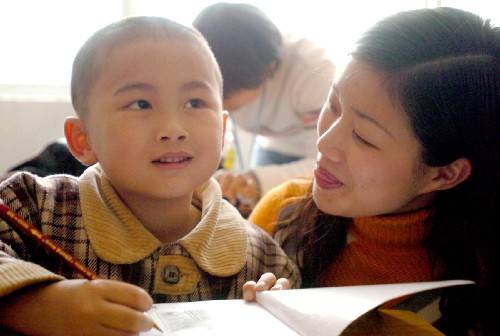
Teacher Student Time
It’s common for us to praise countries like China, Japan, and Korea on their teaching methods. Of course, their math scores frequently deliver a spanking to American children and the future of American students gets even gloomier from there. The results are in the numbers and the proof is ample, but this educational success doesn’t come without a cost. As we attempt to compete academicaly, and globably, this cost has been (or is still being) experienced by American students with mixed responses from their administrators. At least the few administrator I’ve talked to were not full of praise about their new exam-based system.
But what I had never imagined are the changes students in China experience between public (grade) school and their university education. It’s China. Shouldn’t it all be the same? However, after a conversation tonight with one student from Guangdong province, I finally connected the dots on something that drives a stake through the heart of my original thought; and it’s the cause of certain behavior which plagues foreign employers in China everyday. They ask: “Why do my workers need my constant oversight in order to complete their tasks?”

University Gates
This burden is very common. Even I have whitnessed many incompleted, or unattempted, tasks which were clearly discussed in both English and Chinese. My assistant would just pop a fly ball into the parking lot or simply wouldn’t “do it”. I had no idea why. I used very concrete descriptions with clear action words, but still there were major descrepancies between the original task and what my employee actually performed. It had always baffled me… until tonight.
The conversation started like this… “Ben Teacher, my English is getting worse while I’m at university. Can I study more with you after class?”
“Sure, but why is it getting worse? Aren’t you an English major?” I replied, wondering how there would be a difference between high school and college.
“Because teachers in university are different. They don’t stare us while we read from the text.”
I thought and spoke synchonously, “Why were they staring at you while you read from the book?”
She said, “That is how we study for many years. But now our teachers don’t do that.”
“Well, college is more about self-motivation. You have to take more responsibilities for your own life and study.”
“But it’s hard!” she said. “I don’t think I’m getting enough practice. And that is why I want to study more with my teachers…”

Recent Grads
What most Chinese students get for years is a kind of babysitter-style of teacher. The students seem to be young birds whose wings never get a chance to fully develop and aren’t encouraged to do so. As their major exam (Gao Kao) looms on the horizon, the results of which lock them into a life-long position in society, so much pressure mounts. Parents expect their children to get the highest possible marks so that they can secure a “good” job. Meanwhile, there is little time for discovery, exploration, or creativity.
At the end of the day, we (the world) are left with a difficult choice. Do we compete on an educational standard that is easy to measure, but raises robots; or do we compare the tangible results of education and tell the exam-based educational standard to go to hell? (Or “pound sand” as my father always says).
What do you think? How do we honestly create success for our students within this global competition?
Related posts:
- Chinese Education in 2011 The New Year has passed in the West, but we are gearing up for a the Year of the...
- Gao Kao, The Chinese Exam Explained by Chinese Students Today I asked students in a “Listening and Speaking” course what their future career holds for them. Most of...
- Volunteer Blogs of Asia From my experience, there are a number of blogs that are dedicated to helping the poor and underpriviledged of...
- HSK: Certify Your Chinese For the past few weeks I’ve been away from AsianLiving to work on a long-standing goal of mine: Crush...
- YinDo Hotel’s Invisible Wall March 8, 2007 – 9:30am Meeting with Zhou Laoshi. (HR department- 13 years experience) Meeting with Zhou Laoshi was...


 Contact Me: ben@asianliving.me
Contact Me: ben@asianliving.me